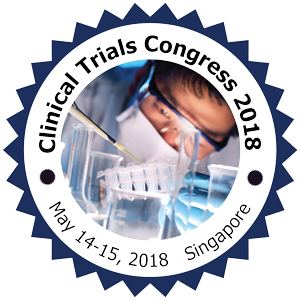
Myat Thu Thu
Asian Institute of Medicine Science and Technology (AIMST)
Title: Role of genetic & caloric restriction in clinical trial
Biography
Biography: Myat Thu Thu
Abstract
Statement of the Problem: Genetic may play a pivotal role in longevity and caloric restriction (CR). Some diseases are caused by genetic defect and manipulating the genetic defect by gene therapy is the best treatment for that conditions and diseases. Gene mutation (mutant) can be solved out the gene that can prolong lifespan by doing research in Caenorhabditis elegans (C. elegans) because its genome was well sequenced and similar to human genome. It becomes model organism in our laboratory because of difficulties to explore long lifespan gene in human directly and less expense compared to other research organisms.
Methodology & Theoretical Orientation: In our study, we used C. elegans wild type (WT), long lifespan mutants daf-2 (e1370), age-1 (hx546), and short lifespan mutants daf-16 (mu86 and mgDf50) fed with alive E. coli (109,108 and 107cfu/ml) to explore the effect of caloric restriction in the insulin-insulin like growth factor signaling pathway (ILS). Lifespan of C. elegans was monitored by using liquid culture medium in 96 well plates. 100 worms for each group were cultured in synthetic complete media containing ampicillin (50 μg/ml) and amphotericin B (0.1 μg/ml). We used 50 μg/ml 5-fluoro-2’-deoxyuridine (5-FUdR) in well to prevent hatching. All experiments were performed at 20 ºC for 2 times.
Conclusion & Significance: There was significant increase in lifespan of WT and age-1 mutant C. elegans, but lesser increase in daf-2 and daf-16 mutants when fed with alive E. coli (108 and107 cfu/ml) compared to that group fed with alive E. coli (109 cfu/ml). In conclusion, CR and ILS signaling pathways do not overlap fully. From our study, further research on gene functions under CR conditions and screening variety of drugs useful for aging in human.

